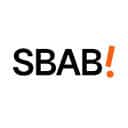About Company
- Overview
- Information
- Review

SBAB Bank AB

Sweden
01 Jul 1985 (40 Years)
Last online: No recent activity
No Review
Not enough to calculate score
Provided by TrustFinance
Verification on TrustFinance
0.00
Traffic & Engagement
4.00
This company no score yet, be the first to review
Provided by TrustFinance
Security Information
What are the differences in regulations for each
License
A Grade License
Issued by globally renowned regulators, these licenses ensure the highest trader protection through strict compliance, fund segregation, insurance, and regular audits. Dispute resolution and adherence to AML/CTF standards further enhance security.
B Grade License
Granted by respected regional regulators, these licenses offer robust safety measures such as fund segregation, financial reporting, and compensation schemes. Though slightly less strict than Tier 1, they provide dependable regional protection.
C Grade License
Issued by regulators in emerging markets, these licenses offer basic protections such as minimum capital requirements and AML policies. Oversight is less stringent, so traders should exercise caution and verify safety measures.
D Grade License
From jurisdictions with minimal oversight, these licenses often lack key protections like fund segregation and insurance. While attractive for operational flexibility, they pose higher risks to traders.
Company Information
Get to know SBAB Bank AB
Company Information
Get to know SBAB Bank AB
SBAB started operating on 1 July 1985, financing government mortgages that were previously financed through the government budget. At the end of 1985, SBAB had four employees. In 1986, the regulations for mortgage bonds were repealed and all capital borrowing became subject to competition in the Swedish market. In July 1989, SBAB took over the administration of government mortgages from the National Board of Housing, Building and Planning. However, credit scoring and the administration of regional loans remained the responsibility of the county housing boards. Currency regulations were repealed and the international capital market was opened to all financial institutions in Sweden. SBAB established itself early in two major international credit markets: Tokyo and London. In 1991, SBAB was entitled for the first time to provide loans secured by a first mortgage in competition with other mortgage lenders. In 1992, all of SBAB's lending operations began operating under their own management and the company's special position in the housing credit market ceased to exist. A customer centre was established in Karlstad to manage the administration of loans taken over from the county housing boards. Losses on the loans granted by the government had been growing for some years. Through a restructuring of the government mortgages with weaker credit quality, parts of SBAB's loan stock were transferred to Venantius. At the same time, loans with better credit quality were acquired and the result was a loan stock that was approximately the same size as before, but with significantly higher quality. The customer centre in Karlstad was expanded to provide better service to personal banking customers. In 1998, loan applications for personal banking customers were launched on SBAB's website, which quickly became an increasingly important sales channel. SBAB's role as a challenger was strengthened. In 2003, the interest rates for loans on tenant-owner rights and holiday homes were lowered to the same level as the historically cheaper single-family dwellings. In 2005, top loans were abolished. Several new partnerships were established, with partners such as Ikanobanken and ICA banken. In 2004, automatic loan promises were launched on SBAB's website so that customers could obtain on-line credit decisions in seconds. SBAB broadened its funding techniques and began carrying out securitised loan transactions. In 2006, the SBAB subsidiary, The Swedish Covered Bond Corporation (SCBC), became the first mortgage company in Sweden to issue covered bonds with the highest possible credit ratings from Moody's and Standard & Poor's. Our History SBAB was founded in 1985, and has gone through many changes since then. This is our journey. From four employees to a Tokyo Stock Exchange listing SBAB started operating on 1 July 1985, financing government mortgages that were previously financed through the government budget. At the end of 1985, SBAB had four employees. In 1986, the regulations for mortgage bonds were repealed and all capital borrowing became subject to competition in the Swedish market. In July 1989, SBAB took over the administration of government mortgages from the National Board of Housing, Building and Planning. However, credit scoring and the administration of regional loans remained the responsibility of the county housing boards. Currency regulations were repealed and the international capital market was opened to all financial institutions in Sweden. SBAB established itself early in two major international credit markets: Tokyo and London. From competition on equal terms to online loan applications In 1991, SBAB was entitled for the first time to provide loans secured by a first mortgage in competition with other mortgage lenders. In 1992, all of SBAB's lending operations began operating under their own management and the company's special position in the housing credit market ceased to exist. A customer centre was established in Karlstad to manage the administration of loans taken over from the county housing boards. Losses on the loans granted by the government had been growing for some years. Through a restructuring of the government mortgages with weaker credit quality, parts of SBAB's loan stock were transferred to Venantius. At the same time, loans with better credit quality were acquired and the result was a loan stock that was approximately the same size as before, but with significantly higher quality. The customer centre in Karlstad was expanded to provide better service to personal banking customers. In 1998, loan applications for personal banking customers were launched on SBAB's website, which quickly became an increasingly important sales channel. From the role of a challenger to new funding techniques SBAB's role as a challenger was strengthened. In 2003, the interest rates for loans on tenant-owner rights and holiday homes were lowered to the same level as the historically cheaper single-family dwellings. In 2005, top loans were abolished. Several new partnerships were established, with partners such as Ikanobanken and ICA banken. In 2004, automatic loan promises were launched on SBAB's website so that customers could obtain on-line credit decisions in seconds. SBAB broadened its funding techniques and began carrying out securitised loan transactions. In 2006, the SBAB subsidiary, The Swedish Covered Bond Corporation (SCBC), became the first mortgage company in Sweden to issue covered bonds with the highest possible credit ratings from Moody's and Standard & Poor's. From residential mortgages to banking In April 2007, SBAB expanded its product line to include two kinds of savings accounts for personal banking customers. SBAB has since broadened its operations and started offering deposits for the corporate market and tenant-owner associations in 2009. In December 2009, SBAB submitted an application to the Swedish Financial Supervisory Authority requesting permission to conduct banking operations and the last steps towards becoming a bank were taken in early 2011. The licence to conduct banking operations will enable SBAB to further broaden its product line.
Industry
- Financial BankingPRIMARY
- Financial Other Service
Contact
-
-
-
-
Social
Company hasn't updated its information.
Users who look SBAB Bank AB also look…
Reviews
Social Scout
See what Social Scout found of SBAB Bank AB
Provided by TrustFinance AI Analysis
SBAB Bank AB Reviews
Reviews
Total 0
AI Review analysis
Let’s TrustFinance AI Summarize all the reviews for you.
Provided by TrustFinance AI Analysis
Filter
5 Star
4 Star
3 Star
2 Star
1 Star
Sort by
AI Review analysis
Let’s TrustFinance AI Summarize all the reviews for you.
Provided by TrustFinance AI Analysis


